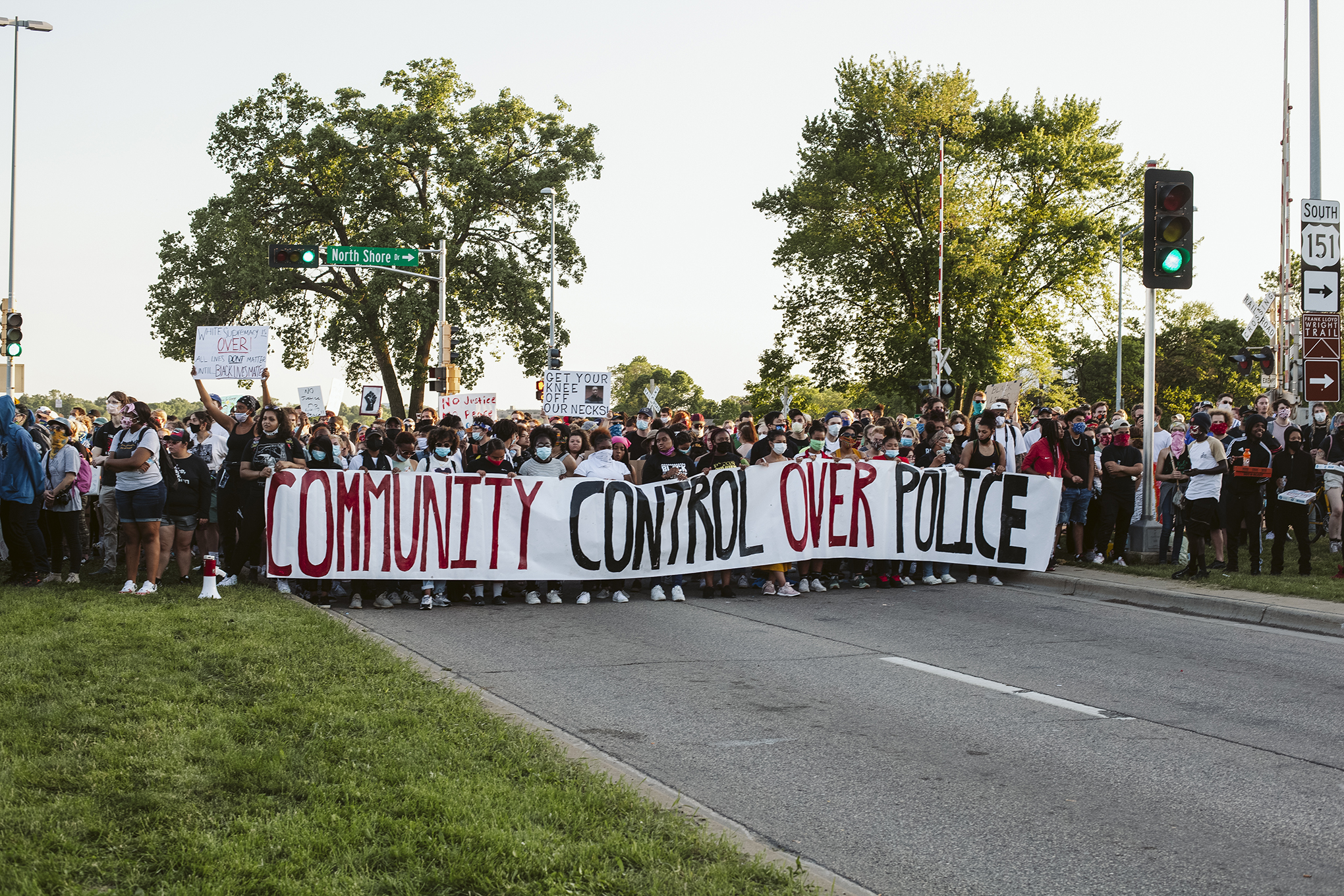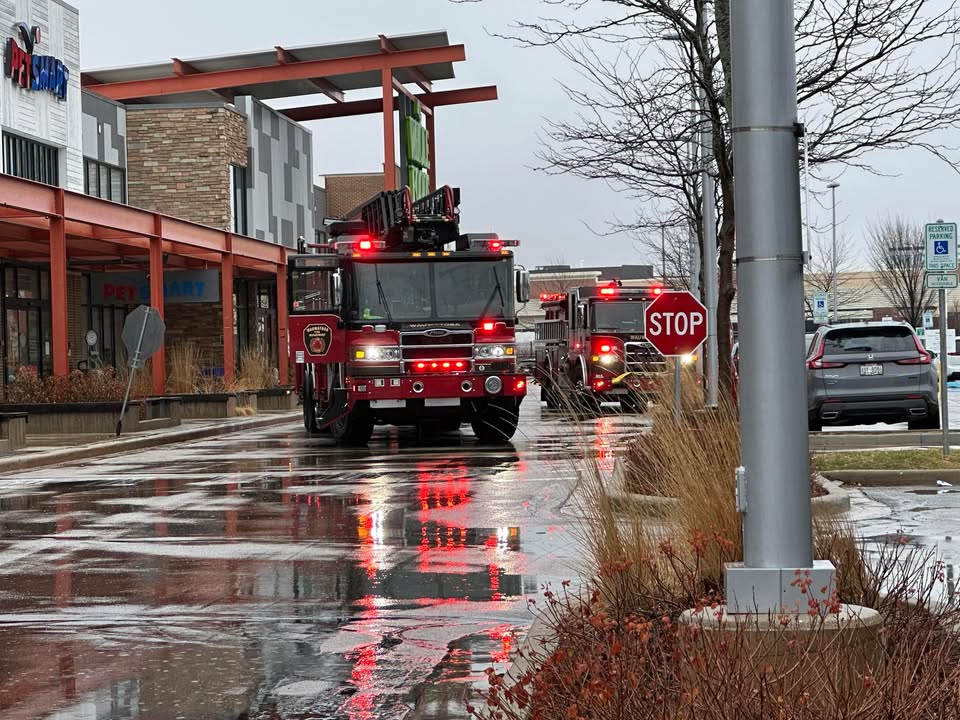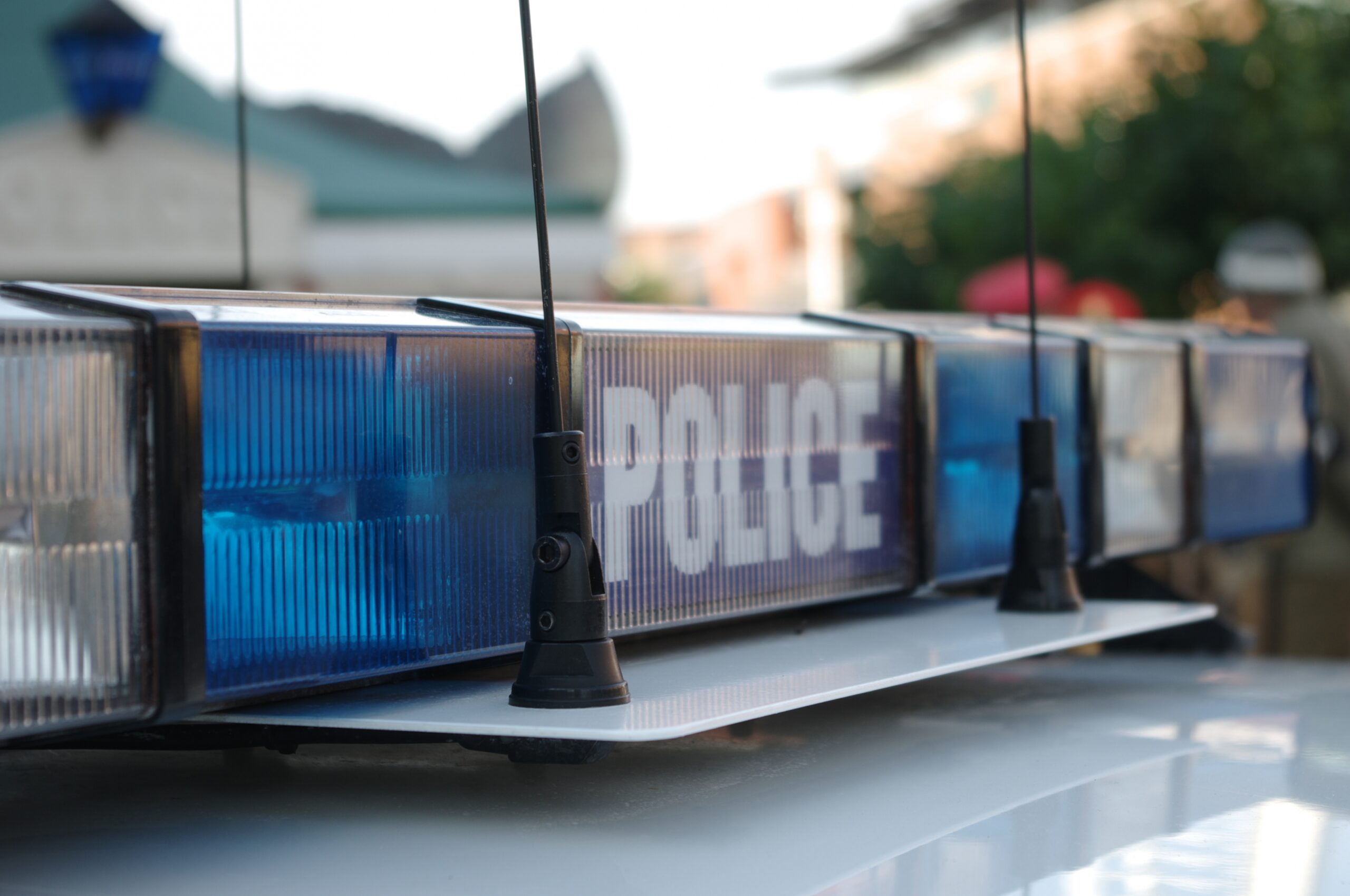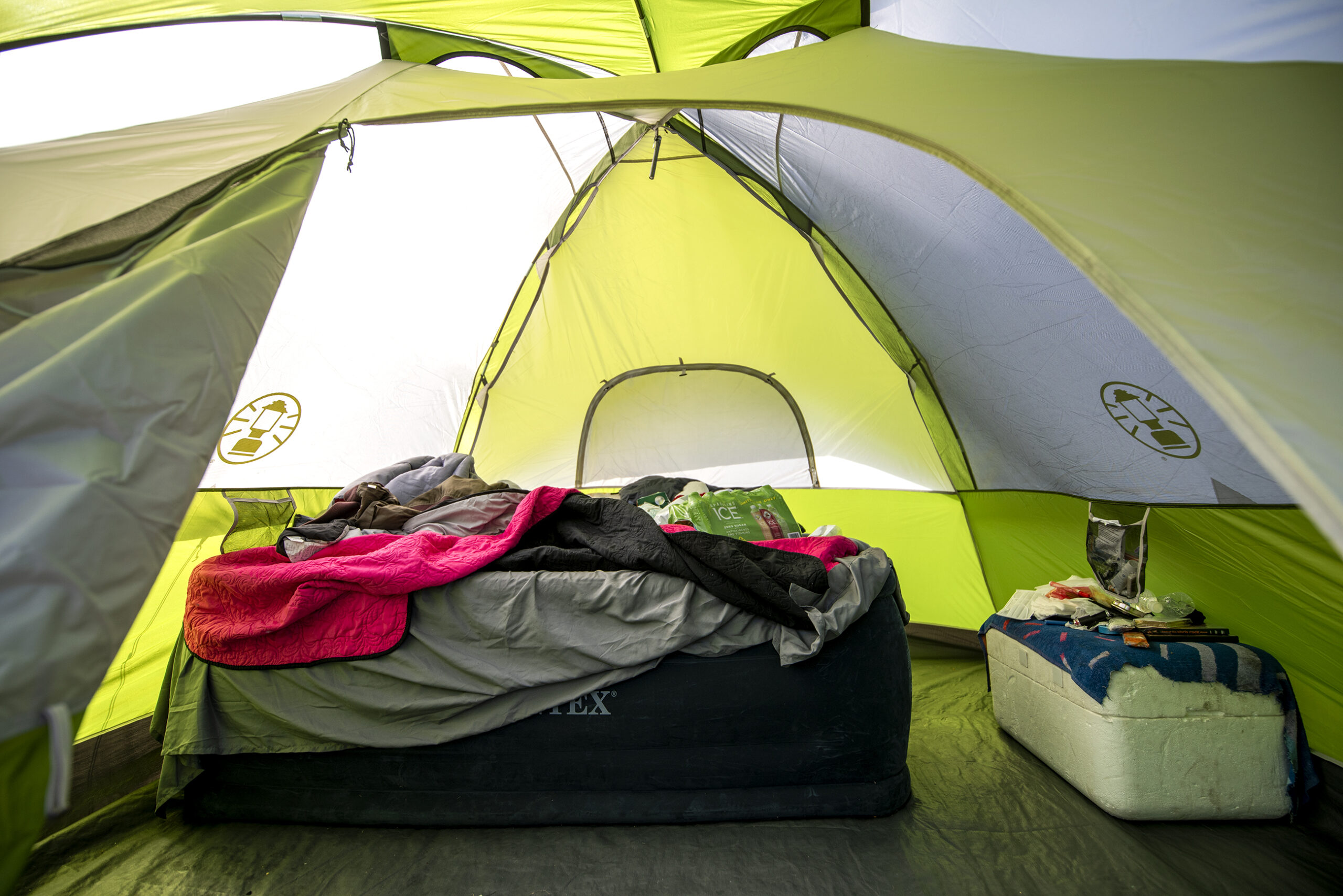For nearly three weeks, cities across Wisconsin have seen people gathering and marching to demand changes to police practices and policies. Protests spurred by the death of George Floyd, who died as a Minneapolis police officer knelt on his neck for nearly nine minutes, have been most noticeable and constant in Milwaukee and Madison.
While the demonstrations share a focus on racial justice and putting an end to police brutality, they’ve been organized by a variety of groups, sometimes looking for different kinds of change.
Ahead of protests and events planned in Milwaukee, Madison and other cities around the state to mark Juneteenth, leaders of three groups that have been organizing protests joined WPR’s “All Things Considered” host Brady Carlson for a conversation about the changes they’re calling for and how this moment in history is different from what we’ve seen in the recent past.
News with a little more humanity
WPR’s “Wisconsin Today” newsletter keeps you connected to the state you love without feeling overwhelmed. No paywall. No agenda. No corporate filter.
Vaun Mayes leads Community Task Force MKE in Milwaukee. M. Adams is co-executive director of Freedom Inc. in Madison. Brandi Grayson is founder and CEO of Urban Triage, also in Madison.
This conversation has been edited for brevity and clarity.
Brady Carlson: Something we’ve heard from each of your organizations is increased community control and oversight of the police. Brandi Grayson, Madison is moving forward with creating a citizen’s oversight body in the city. Would that be a step in the right direction to you?
Brandi Grayson: Well, it would be a step in the right direction if we didn’t have politics whitewashing it. The community oversight board was recommended by an ad hoc committee, as you probably know, formed by the Police Department, city and community members. And out of that ad hoc committee came (177) recommendations, including the oversight committee, which came with certain requirements. First is the power to cease to sue the Police Department, the power to subpoena witnesses, the power to do our own investigations, and the auditor who would report directly to the community oversight board. So, all of that power and accountability would be stripped and those recommendations and resolutions are now sitting within the city council. We have been advocating diligently over the last week or two to get those recommendations rejected. But the city council, along with our mayor, they’re playing politics.
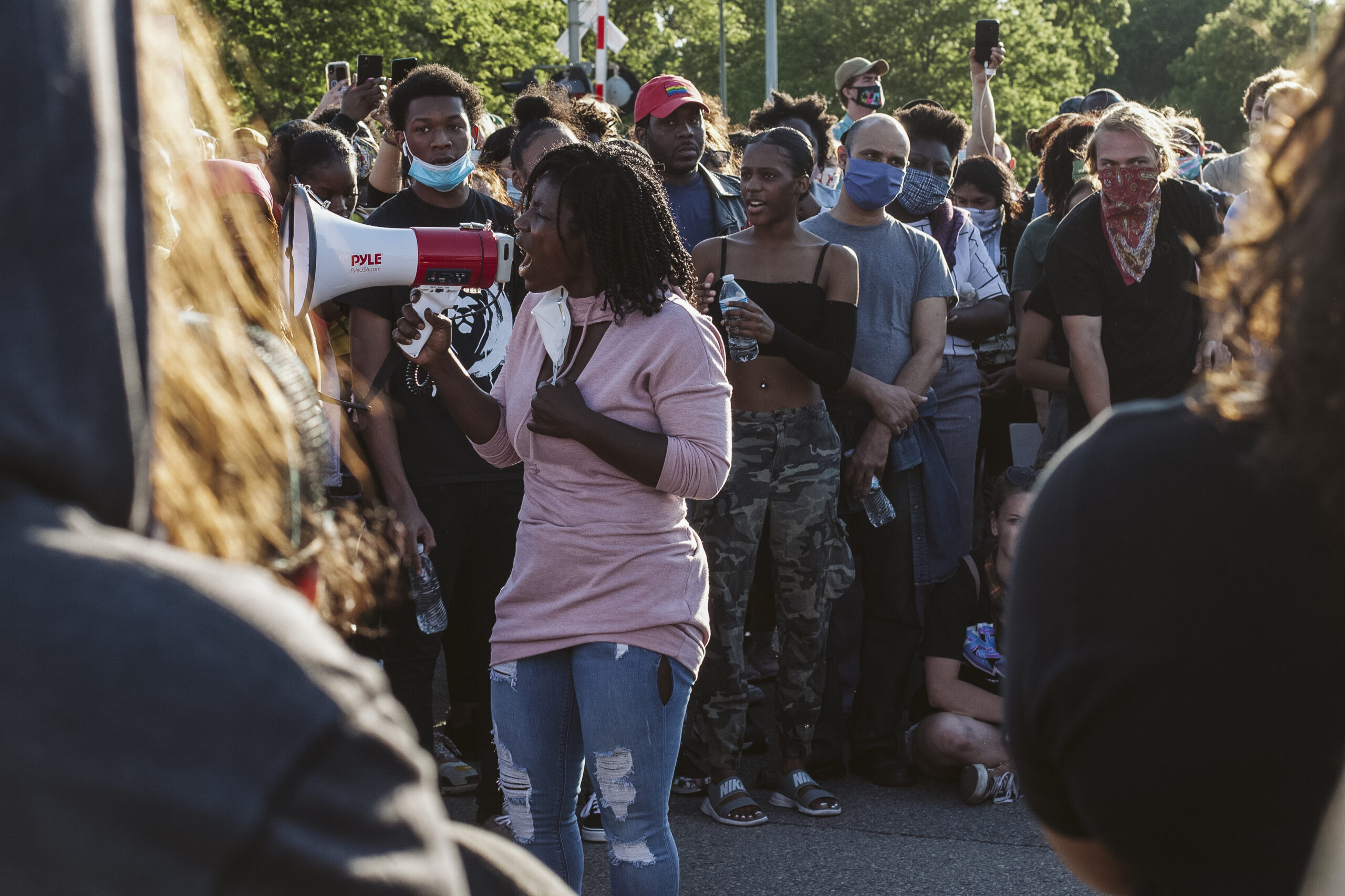
BC: Vaun Mayes, Milwaukee’s fire and police commission is one of the oldest citizen oversight boards in the country. But Community Task Force MKE says the board should be the voice of the people. So if the citizen oversight board isn’t representing the voices of citizens, then does that bode well for an effort like what Brandi is describing in Madison to try to create more citizen oversight?
Vaun Mayes: Not only is it one of the oldest or possibly the oldest, it is the most powerful in the entire nation. It has the most leverage and power in the entire nation. Problem with that is the mayor appoints people that he wants on there. There have been four vacant seats for a number of years, I think close to a decade. And the last two appointments were one former police officer and one former firefighter. And that has been a problem for us.
A lot of things that the community has not supported, they have passed and allowed to go through. And now, as Brandi talked about, our mayor has stepped over a collaborative committee that was created. He created a brand new committee to address these issues when these issues were being addressed by that collaborative committee for the past two-plus years. So, again, people just have no reason, really, to believe that these things are meant to work.
BC: We’ve heard numerous calls lately — the phrase that gets used is ‘defund the police’ or even ‘abolish the police.’ That can mean a number of different things from severing ties with, or doing away with police as we currently know them, or changing funding allocations for police to other sources of support in the community. What could each of you see this process potentially looking like in your community?
VM: Police are not bringing down crime. Police are not controlling crime. They are just enforcing policies and arresting people after the fact. It is more of a reactive approach than a proactive approach. You have groups like mine and 414Life, who go in to deescalate situations, go in to intervene in violent situations and no one gets hurt. But how can police officers go into these same situations and people get killed? So, when police do these issues that comes out of our tax dollars (to pay for things like lawsuits or paid leave). We should be talking about that money coming out of their budget, money coming out of their pensions. Because right now, how things are set up, there is no incentive for them not to do the bad behavior that they’re doing.
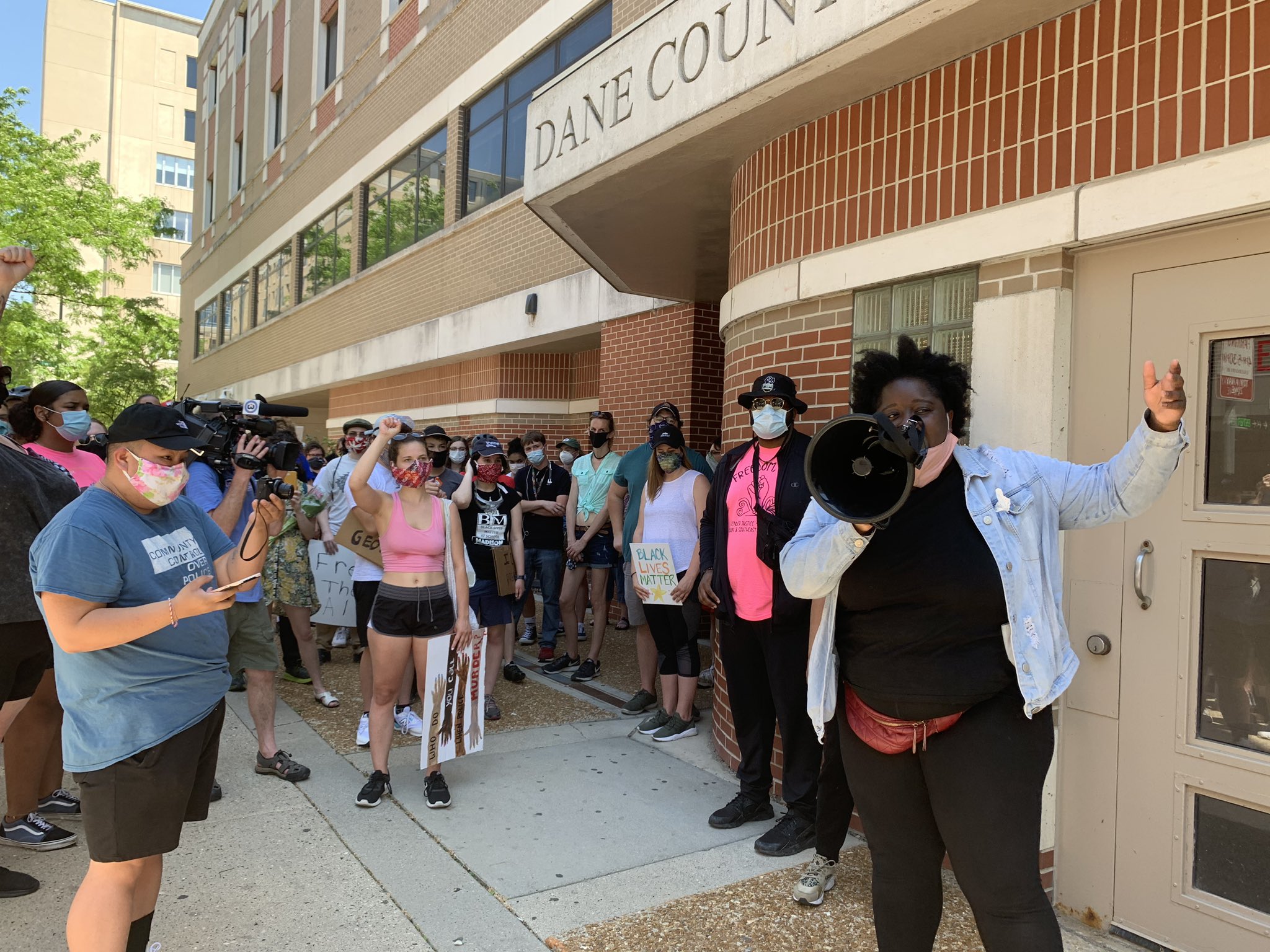
BC: M. Adams, from where you are, what do you see as a viable option for Madison when it comes to these calls for defunding or abolishing or reforming the police?
M. Adams: We want to be really clear that we are talking about completely getting rid of the Police Department as we understand it. That means getting rid of what we currently understand as policing institutions and police departments. So when we say defund, we’re talking about every single penny. When we say community control, we’re talking about having complete political power to be able to determine what safety looks like in our communities. Because right now, the ability to develop and implement apparatuses of safety throughout the country is in the hands of the police departments and government. And instead, we as a people, we as a community want to be able to determine what that is.
BC: And Brandi, what then is the argument that you might need to make to someone who would hear this and say, “No police on the streets sounds more dangerous to me?”
BG: Police have always been an institution used to inflict state violence upon black bodies. And currently police are the modern day lynching crew. And if we understand the historical context to police, police were created to protect property, to protect capital, as a result of slavery in colonialization. We saw this in Atlanta. When Mr. Rayshard Brooks was murdered in a Wendy’s drive-thru for falling asleep. Now, as M. and Vaun have pointed out, that response should not be police. And when we talk about defunding police, where we’re talking specifically about a paradigm shift, dismantling ideas rooted in white supremacy, patriarchal capitalism. And, that is to abolish police and create a different system of dealing with people on the human level to build people and not jails. And if people are confused about that, then we must question our own ability to see past institutions and systems grounded and founded in white supremacy and racism.
BC: Vaun Mayes, how much of what you’re describing and your colleagues are describing can be done at the city and community level? And then how much would need to take place statewide where you could work together — Milwaukee, Madison and beyond?
VM: The reason why I didn’t go as extreme is my comrades — and I do agree with them that the actual best case scenario would be to completely get rid of police — is one, there’s a difference in the age gap where older people who may not necessarily know how to deal with young people or people in the community, they have also assumed that ideal: “Yes, I need police. I need protection from those people.” And so when they come to these community meetings, that is what they say. And so my comments are based off the fact that I know not everybody will agree with those extreme measures.
What community policing looks like in Madison versus what community policing looks like in Milwaukee — again from place to place, depending on what the issues are — there may be slight differences. There may be major differences. The thing is to see what those differences would be like to coordinate among each other to assist in those, because at some point in time in history, we didn’t need police, we didn’t need jails, we didn’t need old folks’ homes. And so we are living in a paradigm and construct where those things are necessary.
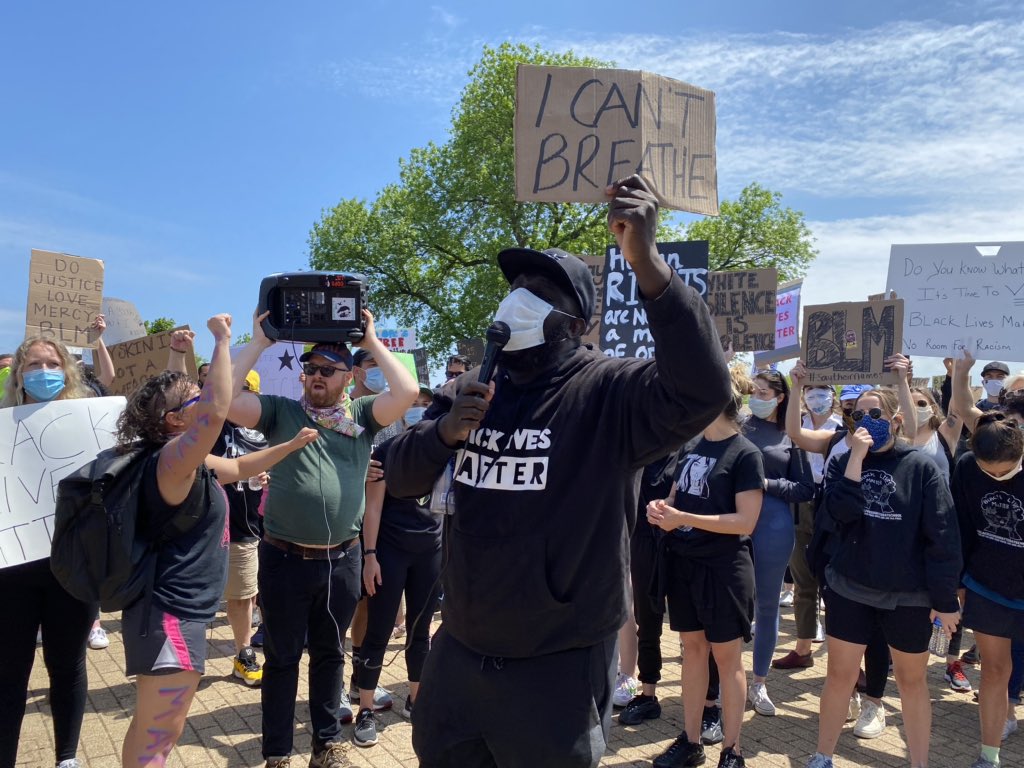
BC: Does this moment following the death of George Floyd feel different to you compared to, say, what happened after the death of Trayvon Martin or Sylville Smith or Michael Brown, just to name a few? And if it feels different, what is making it different? M. Adams, I’ll start with you.
MA: The answer is yes and no. The no is — does the amount of trauma caused by it to the Black community, is that different this time? Is the pain and the rage that we feel, Is that different this time? No. The pain and the rage and the trauma that this causes is always there.
There are some important societal differences right now that help to create really big openings. One of them is that we are still in the midst of the COVID-19 pandemic, right? Where we saw Black people all across the country die. And quite frankly, we should call it state-sanctioned murder. Right? Because the ability, the resources and the coordinating capacity was there to support Black people. But we saw that Black people were dying in ways in that no other community was amidst the COVID-19 pandemic. They really demonstrated how deep, in fact, race and racism is. It became a tipping point for Black folks. So while other people were claiming things like “Safer at Home,” which quite frankly was based in what would be good for white middle-class people, Black people were still sent to work. Our labor was essential, but our lives were not.
I also think Ferguson was something that is now part of our memory. Where now we have a generation of leaders who moved into action that were once activated because of Mike Brown’s murder. But now they were ready, they were trained, they were able to move into action. And I also think because of the former movement for Black lives developing, that when more police murders happened … it was easier for more people to begin to question the fundamental function of policing.
BC: Vaun Mayes, I’ll ask you the same question. Does this feel different to you? And if so, what makes it so?
VM: I think this is a time in history that is unique, different than I have experienced and a lot of other different police shootings or when these issues come up, is it seems that a lot more people on both sides agree that what we all saw was wrong. And typically, when you have pro-police groups, when you have, you know, mayors and all these different people, a lot of times they will never think they do anything wrong. Well, you have not only us, as we’ve been saying, but you have a large mass of the white population and a large part of the pro-police group who all say, “What we saw is wrong, and that needs to stop.”
I think that’s a really unique point in history, where we should capitalize on that. Our state legislators, our Congress folks, people at the federal level, all these folks at different levels, police chiefs all saying and denouncing these acts. And that that in particular is wrong. And so right now is the time to call them out and say, “I don’t want to just hear you say that is wrong. I want you to do something about it. I want you to commit to doing something about it.”
Wisconsin Public Radio, © Copyright 2025, Board of Regents of the University of Wisconsin System and Wisconsin Educational Communications Board.

